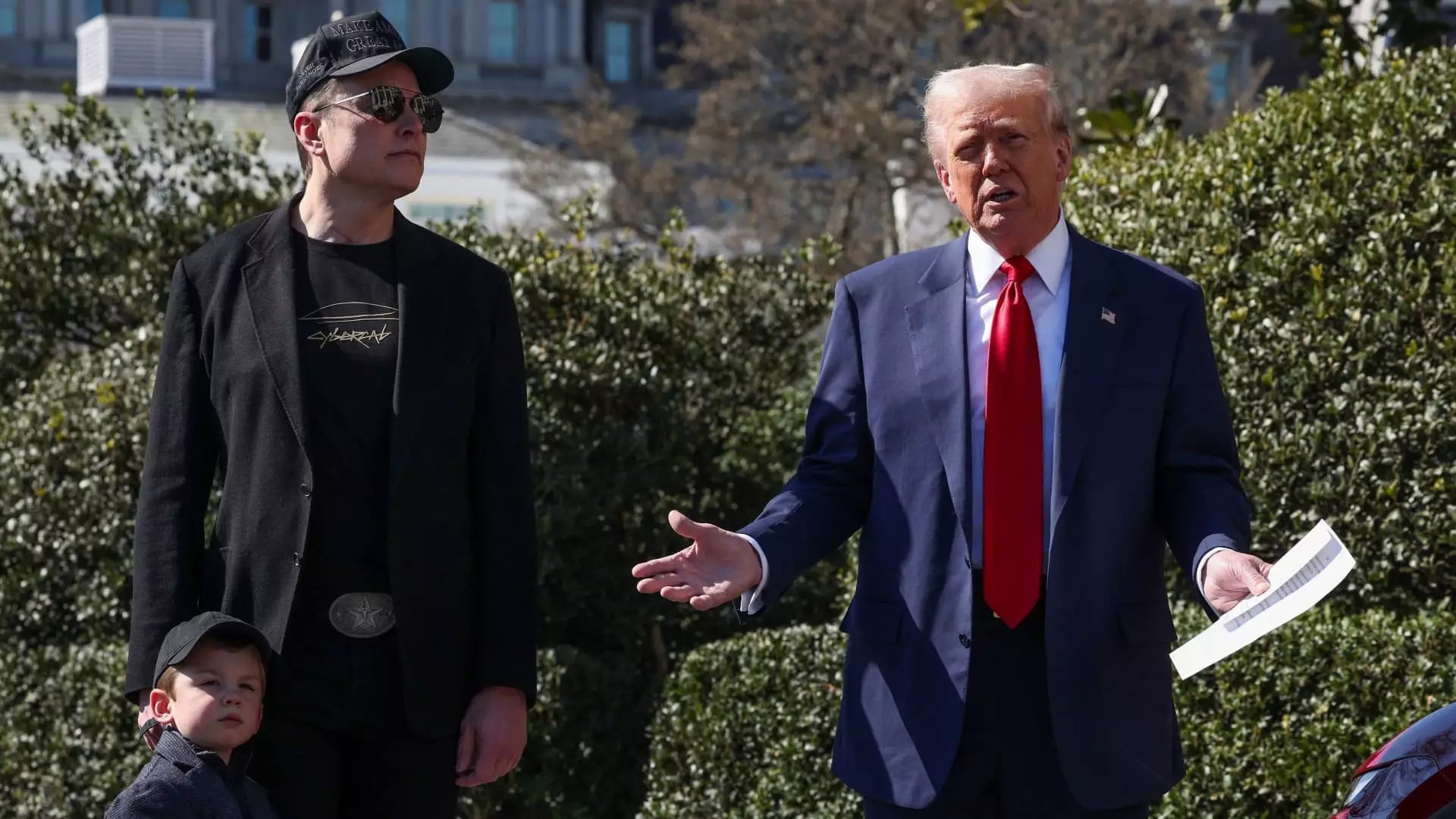The recent headlines portraying President Donald Trump’s public denouncement of Elon Musk seem less like genuine political conflict and more like a carefully cultivated distraction. While Trump claims his aim is to help all American businesses thrive, the details buried beneath his words suggest a broader battle for influence over lucrative government contracts and regulatory advantages. The spectacle of tweets and speeches conceals a game of economic chess—one where both figures wield their rhetoric as shields, shielding their vested interests from scrutiny.
Musk’s enterprises, ranging from Tesla to SpaceX, are deeply intertwined with the federal government’s purse strings. These companies thrive not merely on their innovation but on a complex web of subsidies, incentives, and contracts that ensure their dominance. Musk’s opposition to certain legislation or political figures appears as strategic positioning—sometimes bravado, sometimes real concern, but mostly a negotiation tactic that signals to both government and market stakeholders that his companies are too vital to be undermined. Trump’s public threats, therefore, are less about personal vendettas and more about asserting control over a financial ecosystem that sustains these tech giants.
The Myth of Competition as a Zero-Sum Game
The narrative that Musk must be either “destroyed” or “allowed to prosper” oversimplifies the realities of modern economic policy. The U.S. economy is not a fixed pie where success of one company automatically means the demise of others. Yet, political rhetoric often fosters this false dichotomy, positioning Musk as either a hero or a villain. Such framing ignores the fact that government subsidies, certain regulations, and military contracts serve broader national interests—whether fostering innovation, ensuring energy independence, or maintaining a technological edge.
From this lens, Trump’s threats to cut contracts or tighten oversight resemble attempts to recalibrate this delicate balance. It’s not about punishing Musk but about asserting the government’s authority to decide how taxpayer resources are allocated. These contracts, particularly in aerospace and defense, are highly strategic. Casting Musk as the villain trying to ‘wreck’ them neglects the role of these agreements in national security, technological progress, and job creation. The real question becomes: are these contracts being used as economic leviathans that entrench monopolistic powers at the expense of fair competition and free enterprise?
Regulatory Credits and the Illusion of Free Market Success
Tesla’s reliance on regulatory credits highlights a fundamental flaw in the narrative of free-market success. The company’s reported $12 billion in environmental credits is an indicator of how heavily government policy influences corporate profitability. These credits are not earned through market competition alone; they are a product of government mandates that favor certain industries, especially low-emission vehicles. Tesla’s ability to monetize these credits demonstrates the extent to which federal and state regulations distort natural market dynamics, creating an artificial boost for select companies.
This reliance on political favors complicates the portrayal of Musk’s companies as purely innovative free-market victories. Instead, they are beneficiaries of a regulatory environment that disproportionately rewards early and aggressive adopters of government-driven policies. When Tesla warns about the possible loss of tax credits and incentives, it reveals a fragile financial structure rooted in government intervention rather than pure innovation or consumer demand. This blurs the line between achievement and strategic dependence, raising questions about the sustainability of such success without continued government support.
The Real Power Struggle Lies Beneath the Surface
Contrary to the simplistic media narrative, the clash between Trump and Musk is more than a petty feud; it reflects the ongoing contest over who controls the future of American economic power. The government has significant leverage through contracts, regulatory standards, and policy incentives, which Musk’s companies have skillfully harnessed. Conversely, political figures recognize that these tools translate into campaign influence, national strategic advantages, and economic prestige.
In this light, the current political skirmish can be viewed as a struggle over influence—not individual personalities, but over the mechanisms that shape American industry and innovation. It’s about whether the government will reassert control over a system that has, in many ways, become dependent on private sector partnerships that are excessively beneficial to a handful of giant corporations. Trump’s vocal threats, then, signal a desire to reposition this power—either to reshape it or to reassert traditional forms of government oversight in an era dominated by Silicon Valley magnates.
The tension coming to a head embodies a central debate: should American economic policy continue facilitating a handful of corporate giants to thrive on political favors, or move towards a more balanced, competitive landscape that fosters genuine innovation without undue influence? The stakes are high, and the real winners—whether corporations or the nation—will be determined by which side manages to exert more control over this hidden power struggle.


Leave a Reply